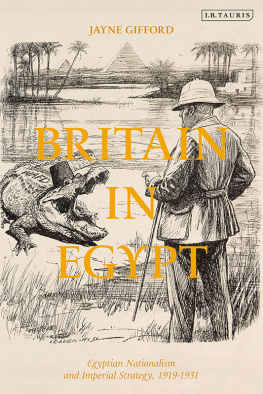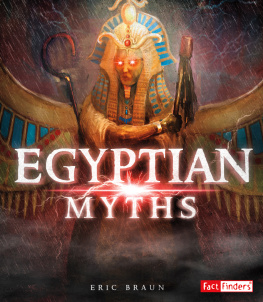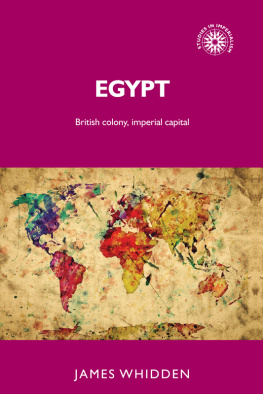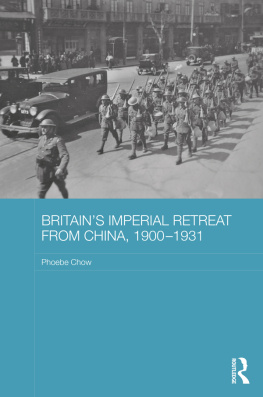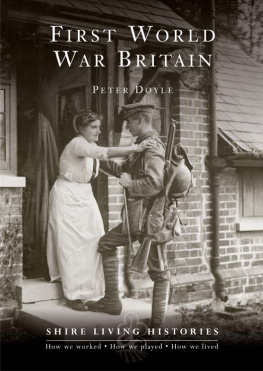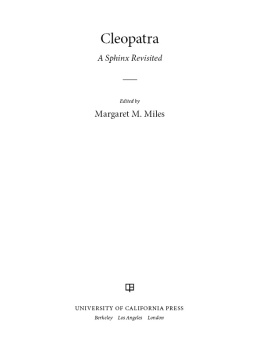Academic research can often be a lonely and isolating pursuit. The culmination of this hard work, however, is the product of much professional and emotional support from colleagues, friends and family alike.
This project is the result of a fascination and respect I have held for Egypt since my first primary school project all those years ago. My interest in diplomatic relations and the impact individuals have on policy formulation (something which is not lost in todays world) was fostered and encouraged during my undergraduate and postgraduate years at the University of the West of England, where I was fortunate to be taught by some of the leading lights in this area: Thomas Otte, Martin Thomas, Glyn Stone, Geoff Swain, Phil Ollerenshaw, Moira Martin, John Fisher and Joe Dunthorn. I am also grateful to Joe for his perseverance and good humour in educating me in both the English and French language all the while regaling his tales of adventure from his travels abroad, instilling the importance of every single word either spoken or written. Joe innately knows how to make even the driest of subjects fun and memorable.
I am indebted to Kent Fedorowich who, as my doctoral supervisor, provided invaluable guidance, support, and has continued to offer generous help in uncovering the story of the British World through the archives as well as the associated wine regions! Gudrun, your insights, advice and hospitality have been priceless.
During my time at the University of East Anglia I have been incredibly fortunate to meet some of the most inspiring, hard-working, supportive, kind and generous people who are not only my colleagues but of whom I am privileged to call my friends. Stephen Church, Thomas Otte, Becky Taylor, Malcolm Gaskill and Anthony Howe, thank you for finding the time to discuss my research and in helping me push through some of the more problematic aspects of the writing process. Emma Griffin, thank you for being my mentor, champion of women in academia as well as early career researchers, and for reading a full draft of the manuscript. Richard Deswarte, Jan Vermeiren, Matthew DAuria, thank you for the companionship, chocolate and coffee! Rob Liddiard, Tom Williamson, Camilla Schofield and Geoff Hicks, you never fail to make me smile even during the busiest of semesters. Ben Jones, Amanda Dillon, Cathie Carmichael, Richard Mills, Chris Jones, Sarah Spooner and Jon Gregory, thank you for always being prepared to lend a sympathetic ear. Without the support, kindness and humanity of Jessica Sharkey and Matthias Neumann, I would not be where I am today. Jennifer Davey, Emily Cockayne, Joel Halcomb and Helena Carr, words cannot do justice to the debt of gratitude I owe: wise counsel, thoughtful words, and good humour thank you.
I wish to thank the staff of the following archives and libraries for their helpful and friendly assistance with my research: the Bodleian Library, Oxford, particularly Colin Harris whose knowledge of the collections is unsurpassed; The National Archives of Scotland; the Asia, Pacific and Africa Collections, London; the British Library, London; the University of Durham Library, Sudan Archive; Cambridge University Library; the Churchill Archive Centre, Cambridge; the Liddell Hart Centre for Military Archives, Kings College London; the Middle East Centre Archive, Oxford; the House of Lords Record Office, London; the Special Collections, University of Birmingham; Rhodes House Library, University of Oxford; and The National Archives, Kew. I also wish to thank the Master and Fellows of Churchill College, Cambridge for permission to quote from papers held in their collections.
I am extremely grateful to I. B. Tauris for their patience in walking me through the publication process, especially Tomasz Hoskins, Nayiri Kendir, Giles Herman and, from Integra, Viswasirasini Govindarajan. I would also like to thank the peer-reviewers for their valuable suggestions and comments, and the copy-editors and Sally Osborn for their meticulous observations and keen eye. Any remaining mistakes and errors of interpretation are, of course, my own. I am grateful to the University of Toronto Press for allowing me to reuse material from an earlier journal article Extracting the Best Deal for Britain: The Assassination of Sir Lee Stack in November 1924 and the Revision of Britains Nile Valley Policy, Canadian Journal of History/Annales canadiennes dhistoire XLVIII, Spring/summer (2013), pp. 87-114.
To those outside of academia it can appear a bizarre and baffling world. Nev, your patient understanding and assistance with the logistics of archival research has been amazing. To the Cornwall crew who have been some of the most welcoming people I have met and who have been instrumental in educating me in the importance of approaching life in a dreckly manner, thank you.
Academic life is a roller-coaster of emotions and I consider myself extremely lucky to have such a generous partner, Ryan, and a family whose love and support is unconditional. It is to mum and dad that this book is dedicated.
If the Suez Canal is our back door to the East, it is the front door to the Europe of Australia, New Zealand and India. If you like to mix your metaphors it is, in fact, the swing door of the British Empire, which has got to keep continually revolving if our communications are to be what they should.
Speech by Anthony Eden to the House of Commons, 23 December 1929.
The US-led invasion of Iraq in 2003 and the Arab Spring at the end of 2010 have once more brought the Middle Eastern region to the fore of international relations. This, in fact, represents a continuity in policy that owes its genesis to the nineteenth century when Western European diplomacy, in particular, that of Britain, was focussed upon maintaining the territorial integrity of the sick man of Europe the Ottoman Empire. During the twentieth century, Western diplomacy continued to focus upon the former Ottoman provinces by attempting to incorporate them into their colonial empires or spheres of influence. It is the immediate postFirst World War period and the evolving Anglo-Egyptian relationship throughout the 1920s that deserve examination since they formed the backbone of Britains imperial defence network.
At the heart of British policy within Egypt was the importance of maintaining control of the Suez Canal to safeguard imperial communication, trade and power across Britains far-flung Empire. The First World War only served to underline this importance when Britain was faced with a global threat to its dominance. The 1920s also witnessed a technological revolution with the explosion in air, telegraph and land railway routes that now linked Africa, India and the Far East, thereby making Egypt the Clapham Junction of imperial communications. These were not mutually exclusive. There existed a great deal of freedom of movement within each of these systems. Egypt is a perfect example of this flexibility in British policymaking moving from the declaration of a Protectorate in December 1914, shortly after the outbreak of war, to nominal independence in 1922 and a full-fledged alliance partner in 1936.
As a result, the British tenure of Egypt cannot be viewed in a monolithic sense. This is exemplified by the differing ways in which the pro-Consuls, later known as High Commissioners between 1914 and 1936 upon the declaration of a Protectorate and as Ambassadors following the conclusion of the Anglo-Egyptian alliance, exercised their powers. Sir Evelyn Baring (September 1883May 1907), later made Lord Cromer in 1892, was nicknamed The Lord for his characteristic tutelage of Egypt. This was in direct contrast to Sir Eldon Gorst (190711), whose term resembled that of complete independence. Gorsts replacement by Lord Kitchener (191115) represented a return to what became labelled Cromerism. However, the terms of Sir Henry McMahon (January 1915December 1916), Sir Reginald Wingate (December 1916January 1919), Field-Marshal Edmund Allenby (March 1919June 1925) and George Lloyd (October 1925July 1929) all earned the ire of Whitehall.


